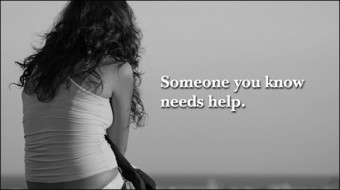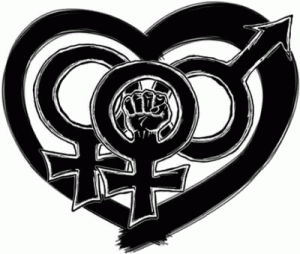Alyssa Hart
Recently I heard about a woman who was struggling within a relationship that had become violent. Concerned about the situation, well-meaning friends urged her to take her two young children and get out of the house. I don’t know any of the people involved in this situation but the frustration they expressed is commonly heard: “Why doesn’t she leave?”
 There are many answers. We know them because we all live in the same culture. Domestic violence, controlling relationships, and examples of bullying are all around us. The dynamics of these situations follow common patterns, although they may vary in intensity from disrespect to abuse.
There are many answers. We know them because we all live in the same culture. Domestic violence, controlling relationships, and examples of bullying are all around us. The dynamics of these situations follow common patterns, although they may vary in intensity from disrespect to abuse.
I recognize the patterns because of my own experience of life and because of years spent volunteering during off-work hours with domestic violence and foster group home agencies. When I heard about this woman, I wanted to send her a story I wrote long ago. The story describes dynamics that are part of a predictable pattern. Although a controlling relationship may begin with attraction, it gradually changes. The early warning signs are often overlooked because the relationship also offers closeness and lots of good times, especially early on. It’s difficult to see the progression of control when you’re living it.
I hoped this woman might see that what was happening wasn’t her fault because of something awful she had done. Even still, I hesitated. So often we don’t weigh in. Why? This issue is all around us. Our news reports are full of stories of rape, abuse, and murder. Many of us know a lot about it. Do we keep what we know to ourselves because we live in a culture that associates these experiences with weakness? We move on. We try to forget. We focus on the future. In a sense, you might say we’re in denial.
Our experiences might help others though, and we can take the time to explain. Why these dynamics are so common, part of a predictable, systemic social pattern, is a topic for another story…
… He slammed the door on his way out of the room. Exhausted, she rested for a moment, thinking back to the embarrassing scene that had started this. She’d just said hi, an innocent greeting to a stranger on the street, and he’d flipped out. Who was he? He thought she knew him, and when she explained that she didn’t, he was convinced that she was hiding something, that maybe they were lovers. It was bizarre, except that this whole nightmare had escalated from it. He suddenly stormed back into the room, his eyes dark, swearing, punching the wall. She tried to focus her mind, then glanced at the door, wondering futilely if she could make it there before him.
When they knocked at the door, relief flooded through her body. He went to the door.
The mask was back. Laughing the infectious laugh she had fallen in love with, that fun-loving laugh that made you smile, he was transformed back into the Great Guy. She was taken back, as always, by how quickly it happened. Watching the complete change from madman to great guy, it occurred to her that maybe he hadn’t really been out of control at all. He greeted the officer and she realized that he usually pulled it off pretty well. She remembered a comment from a friend of hers, just after she had met him. You’re so lucky. He has a heart of gold.
“What’s going on here? We received a call.”
She looked at the officer, eyes red and swollen.
He answered. “Sorry. Just an argument.”
“Everything all right?”
“Sure.” A shrug and a smile. “You know, just an argument, no big deal.” A sheepish grin, guy to guy.
She watched him dispassionately, drained of the energy to move. He was very charming, there was no doubt of that. She was intrigued immediately. He moved into her life and she moved in with him. And after her absorption with this charismatic man allowed her to become alienated from her family and distanced from her friends, she began to see that this laughing, teasing man was not happy. That the fun-loving persona was a mask to hide memories and scars from a childhood marred by pain and abuse.
The officer turned to her. The eyes staring at her were cold, impersonal. She searched his face, looking for some sign of compassion. Where was the officer she had known when she was a child, in her home town? The friendly man who said hello politely to her mother? That man had stopped and knelt beside her to look at her skinned knee, his eyes kind. “Take good care of that knee!” He had stood up and in his blue uniform and hat she had thought him a god, so tall and strong and protective. Whenever she had seen him around town, he had smiled and she had felt safe and happy.
The man in front of her looked irritated. “You O.K.?”
He must see the bruises, the swollen, bleeding lip, the torn clothes. She didn’t understand.
But the eyes stayed cold. Her nerves were out of control, her arms and legs trembling and weak. Emotionally she was strung out from uninterrupted hours of mind-bending arguments and unpredictable outbursts. Her anxiety settled into the pit of her stomach, making her want to vomit.
One day, the mask had slipped, only for a moment, an instant. Was it really a mask? She hadn’t been sure. He had crossed a line, but just a little. Then they had talked.
When she heard the horrible, heart wrenching story, her heart ached for the child he had been, the little boy who had endured so much. Compassion flooded her soul, giving depth to her emotion for him.
The officer cleared his throat.
She hadn’t expected that the line would be crossed again. And again. That she would slowly begin to feel responsible for it. Guilty. And ashamed. That the little lines would become bigger. That despite everything, he would be so tender sometimes. And so needy. That she would believe in the tenderness and would believe that the line wouldn’t be crossed again. She hadn’t expected that, ultimately, the apologies meant nothing. Exactly when she knew for sure, she couldn’t recall, but underneath the great guy mask was a confusing mess of insecurity, selfishness, and occasional cruelty. Did she create this? Was it really her fault? The nightmare really kicked in the night she tried to end the relationship. He wouldn’t let her go. She was embarrassed at first. Until she realized she couldn’t just leave. He came after her.
Shifting his weight, the man looked to her tormentor, the man with whom she had lived and laughed. They exchanged glances.
At that moment, somewhere deep in her desperation and fear, she knew the incomprehensible. And a ridiculously futile anger ignited. Anger at the man standing in front of her with the mission of protecting people. Anger at her naive belief that the police would always help and protect. Anger at the unfairness of it all, anger at her helplessness.
I’m bleeding and bruised and I need you to help me, she screamed silently. Take me away from here. Or take him. Just help me. If I ask you, will you take me? Or will you let me ask and then leave me here anyway? And what then? Can’t you care, even just a little? Or do you just wink when you think I’m not looking and say OK buddy just keep it down? I’m hurt and I need you and you’re the police. Please, damn you. Please.
He glanced at his watch impatiently as he crossed his arms. “Well? You O.K.?”
Her stomach turned as she realized that it was a leading question, that he wanted only one answer. She looked down, finally overwhelmed with exhaustion. Slowly, she nodded.
She heard him leave, the door close.
But that night she finally knew, beyond all doubt. She could not heal him because she was the focus of his control. She faced the fact that he wasn’t going to hear the message he needed, that what he was doing was wrong and futile, from her or from the officer at the door. Chances are he wouldn’t hear the message he needed from anyone until people stopped looking away and paid attention. The insecure man who had relied on her strength, who had needed her so badly, was just sucking her life force and energy to fill the hole inside himself. Each outburst temporarily satisfied his control addiction. But it doesn’t work that way; the anxiety always returns. And she wasn’t sinking any further; it was now just a matter of time. It took longer than she expected, because she had to plan. But she made it. At the time, she was protecting her health and her life. She didn’t realize then how much more it meant.
Leaving provides distance and, eventually, perspective. The details of these experiences vary, but they follow common scripts. These scripts are part of a cultural mindset that too often overlooks or minimizes bullying in all forms of relationships. The courage to speak out, however, begins a process of solidarity that ultimately strengthens community itself.
Recognition,




Lizz
2 Oct 2012Powerful, painful stuff, thank you for sharing – everyone should read this… It is disturbing, it should hurt to read it – if it doesn’t, you are part of the problem …… x
Mercedes
2 Oct 2012It’s unfortunately more common than many people think. Thank you for sharing